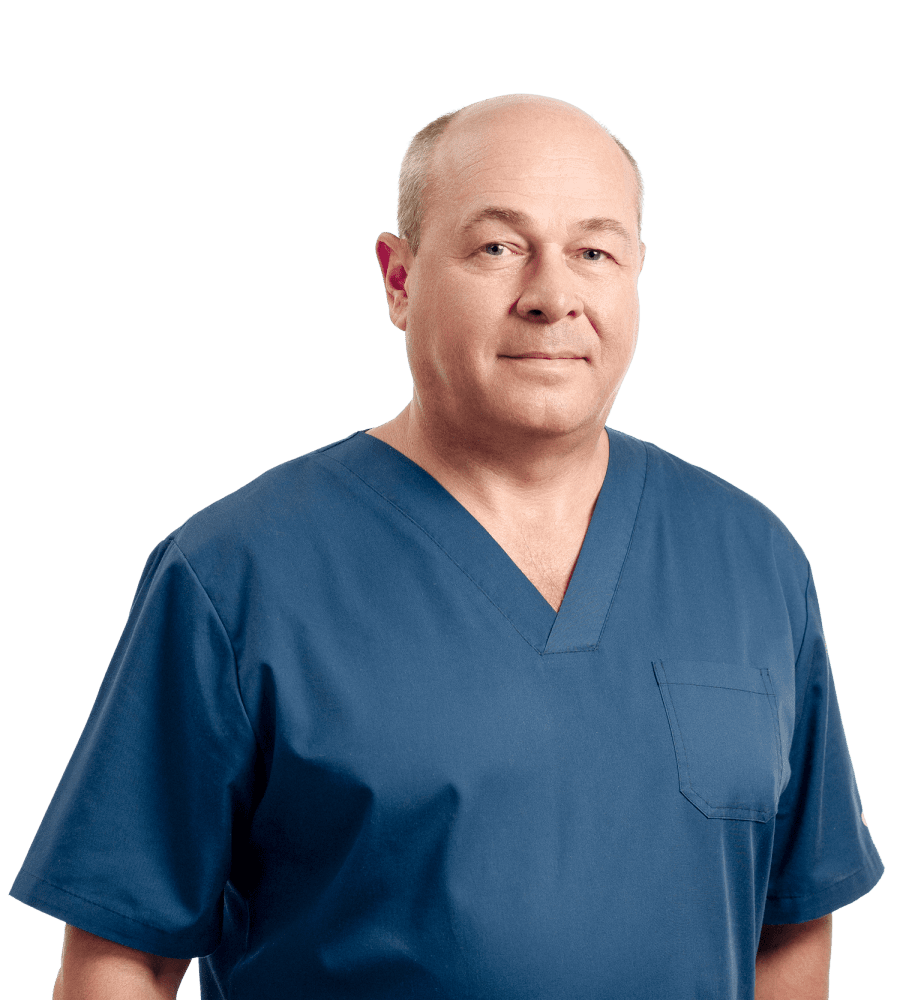Infectious disease specialist in Kharkiv
Infectionists in Kharkiv «ON Clinic»
Infectious disease specialist in Kharkiv: prices — from 650 UAH
Bacteria, viruses and parasites spread rapidly in the environment and cause severe illness in humans.
The most common infectious diseases in Ukraine are influenza, acute intestinal infection, Lyme disease, measles, viral hepatitis, infectious mononucleosis, pertussis, and gonococcal infection.
The modern development of microbiology, virology and bacteriology allows doctors to control outbreaks of infections. This knowledge is used by infectious disease specialists for diagnostics and treatment of infectious diseases, as well as for the timely prevention of epidemics.
Symptoms of infectious diseases
The symptoms of infectious diseases depend on the type of infection. However, there is a common symptom characteristic of all infectious diseases - this is intoxication syndrome. It occurs due to the fact that viruses and bacteria, having entered the body, release toxins that affect organs and have a negative effect on the body.
Intoxication symptoms:
- headaches and vertigo;
- nausea and vomiting;
- fever;
- overexhaustion, fatigue, rapid fatigability, general weakness and malaise;
- pain in muscles and joints;
- chills;
- sleep disorder, nightmares;
- photophobia and increased sensitivity to sounds;
- less often - convulsions, impaired consciousness, delirium, hallucinations.
The specific symptoms depend on the pathogen, duration of the incubation period and the place where microorganisms enter the human body (skin, throat, lungs, intestines, genitals). For example, a patient with intestinal infection is characterized by altered defecation pattern, severe dehydration, nausea and frequent vomiting, abdominal pain and decreased appetite. Respiratory infection is accompanied by coughing, sneezing, runny nose, watery eyes, hoarseness, labored respiration, shortness of breath, sore throat.
What does a hepatologist deal with?
Infectious diseases are always accompanied by intoxication when the liver is most damaged, since it is a filter in the body that neutralizes toxins. For treatment, it is better to visit an infectious disease hepatologist at the medical center “ON Clinic Kharkiv” – the doctor not only treats infectious diseases, but also has knowledge of hepatology, which helps to maintain the liver in a healthy condition. A doctor should be consulted if the following symptoms appear:
- severe headaches;
- drowsiness or insomnia;
- skin rash;
- high temperature;
- enlarged lymph nodes;
- nausea and vomiting;
- abdominal pain;
- loose stool, feces with blood or mucus;
- pain and heaviness in the right hypochondrium;
- yellow skin and eyeballs;
- frequent bitterness in the mouth;
- change of feces color;
- impairment of consciousness;
- increased fatigability, malaise and tiredness.
How does a visit to an infectious disease specialist look like?
During the visit, an infectious disease specialist asks a patient about the symptoms: how long have they occurred, what is the dynamics of temperature, whether there was nausea and muscle pain, how often a patient goes to the toilet, whether there is a chill. Also, the infectious disease specialist collects an epidemiological history: whether the patient had contact with other patients, for example, at work, which countries he recently visited. Initial appointment lasts up to 40 minutes.
It is also possible to organize domiciliary appointment with infectious disease specialist at the patient's home, we accept the call by phone or through the website. The doctor does not come if a patient has a high temperature - 39 and above, episodes of loss of consciousness, in the presence of other life-threatening conditions (in such cases, an ambulance call is required).
After the interview, the doctor examines patient and refers to tests to determine the pathogen and assess the body condition:
- complete blood count and common urine test, feces test;
- biochemical blood test;
- culture, for example, for shigellosis, feces culture is done;
- enzyme immunoassay;
- PCR (polymerase chain reaction);
- blood test for viral hepatitis markers;
- parasitological study.
For example, if infectious mononucleosis is suspected, the doctor will refer to a test for heterophilic antibodies and a serological test for Epstein-Barr virus. If viral hepatitis is suspected, the infectious disease specialist refers to liver function test, viral serological tests and measurement of prothrombin time.
Treatment of infectious diseases
An infectious disease specialist-hepatologist in Kharkiv treats the following diseases:
- helminthiasis, Lyme disease;
- viral hepatitis A, B, C, G;
- dysentery (shigellosis);
- infectious mononucleosis;
- herpesvirus infections;
- measles and rubella;
- giardiasis;
- tinea;
- salmonellosis;
- hepatic fibrosis and cirrhosis;
- toxoplasmosis.
Also, a doctor at the infectious diseases department consults people after a tick bite. An infectious disease specialist does not accept pregnant women - you need to see a doctor who manages pregnancy. In addition, if a patient has repeated vomiting and stool at the time of treatment, an ambulance should be called, since this is a serious condition. Infectious disease specialist for adults in Kharkiv accepts adults only.
To treat infectious diseases, the doctor uses the following treatment methods:
- etiotropic therapy – it is aimed at eliminating the cause of the disease. An infectious disease specialist prescribes antiviral, antibacterial or antiparasitic drugs;
- pathogenetic therapy - it is aimed at normalizing physiological functions. The doctor prescribes agents that relieve inflammation and edema, normalize the salt-water and acid-base balance, remove toxins from the body;
- symptomatic therapy – it is aimed at relieving symptoms and alleviating the patient's condition. The infectious disease specialist prescribes pain killers, antipyretics, sedatives, anticonvulsants and antispasmodics. Not all drugs from the list are prescribed, but only those that are needed in a specific period of the disease. For example, in case of psychomotor agitation - sedative, in case of convulsions - anticonvulsant.
Prevention of infectious diseases
To prevent infectious diseases, adhere to the following prevention principles:
- do preventive vaccinations both for yourselves and your children;
- increase the overall body resistance: exercise, fortify, eat healthy food, get enough sleep, do not overwork and rest, limit alcohol and smoking;
- identify transmitting agents in time and destroy them: rats, lice, mosquitoes, cockroaches, flies;
- follow the labeling of products and do not use expired ones.
If you or your relatives have symptoms of infectious disease, make appointment for consultation with infectious disease specialist in Kharkiv by calling the phone number of the medical center or leaving online application on the website.
| Название | Цена |
| Consultation with an infectious disease specialist | 650 uah |
| ONLINE Infectious disease consultation | 650 uah |
| Calling an infectious disease doctor at home | 1800 uah |



